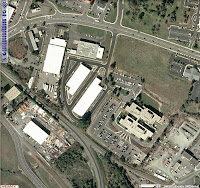“It’s not academic when the president violates the law,” Mr. Romero said. "An exorbitant and extreme theory of executive power that ended up weakening the presidency,”
"An exorbitant and extreme theory of executive power that ended up weakening the presidency,” Harold Hongju Koh, the dean of Yale Law School and a critic of the administration’s legal theories, said the president’s strategy to wiretap without court approval, now reversed, might have provoked so strong a judicial and Congressional rebuff that it would ultimately accomplish the opposite of his goal. “I think historians will see it as an exorbitant and extreme theory of executive power that ended up weakening the presidency,” Mr. Koh said.
hereA Justice Department official said the department would file a motion with the Court of Appeals for the Sixth Circuit in Cincinnati, arguing that the court’s review of the issue in a lawsuit brought by the American Civil Liberties Union “is now moot” in light of this week’s developments.
The officials said the new approach was based on evolving legal interpretations of the foreign surveillance law by the Justice Department, changes in the foreign surveillance statute in recent years and precedents set by the FISA court in approving specific requests to conduct electronic monitoring.
Anthony D. Romero, executive director of the A.C.L.U., said the appellate court should still examine the legality of the program and whether the it had violated intelligence law for the last five years.
The Justice Department said it had worked out an “innovative” arrangement with the Foreign Intelligence Surveillance Court that provided the “necessary speed and agility” to provide court approval to monitor international communications of people inside the United States without jeopardizing national security.
The decision capped 13 months of bruising national debate over the reach of the president’s wartime authorities and his claims of executive power, and it came as the administration faced legal and political hurdles in its effort to continue the surveillance program.
hereIn August, U.S. District Judge Anna Diggs Taylor in Detroit ruled that the program was unconstitutional and should be halted. The 6th U.S. Circuit Court of Appeals allowed the program to continue temporarily.
hereLabels: Financial Privacy, financial records, foreign intelligence surveillance warrantless wiretap, Gonzales, Koh, Romero, Talon, warrantless surveillance














